Sunday 21st February 2016
With an uninviting forecast to follow a day that was wet and dreary, it didn’t seem like the greatest of opportunities to go hiking…
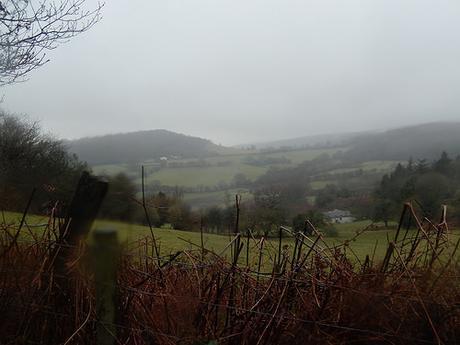
But the lure of creating footsteps in an unfamiliar part of Wales was enough to get me in my car and to arrive at the meeting point on time. It was a similar story for a dozen others (plus one dog).
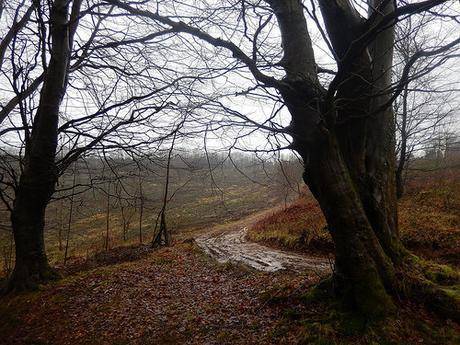
We crossed the old and original Severn Bridge and drove past Chepstow without passing through it and instead, bypassed a number of small villages that were much harder to pronounce, before arriving somewhere within Monmouthshire, at the car park for Wentwood Forest.
Sometimes, my knowledge of a route and the surrounding area will help me decide whether or not to walk there on a rainy day. On this occasion, I was clueless. But the description gave the idea of a woodland walk with very few hills, which didn’t sound too hazardous.
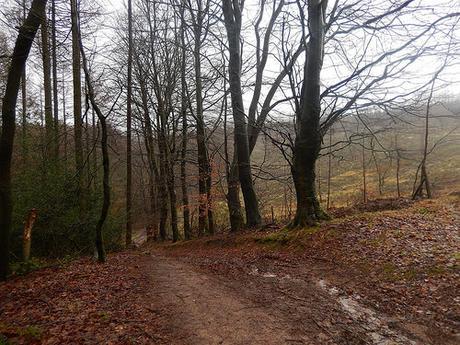
It’s hard to recount exactly where we went. Partly because I wasn’t leading but we were, for the most part, following a succession of wide and easy to follow forest tracks.
I’ve no idea whether our walked remained within the confines of Wentwood or, if we explored several individual forests along the way. I did, however, notice a sign for Wentwood Timber early on – however, a diversion from the group to go and stare at wood for half an hour probably wouldn’t have been ideal!
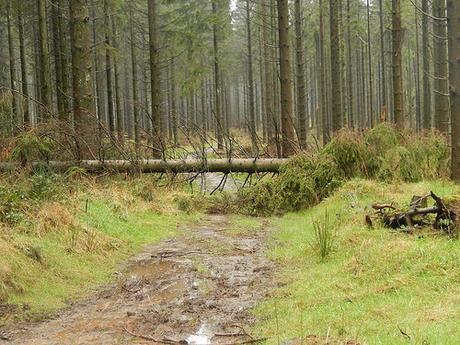
There was an abundance of fallen trees in the first half of our walk, as we made our way towards our eventual lunch stop. It was literally as if this one area had been most severely battered by the winds.
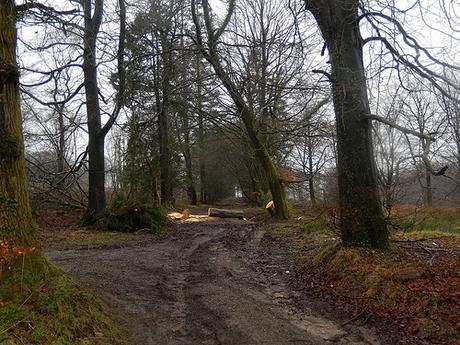
In other areas, trees had clearly been sliced up, amidst upended roots, spanning a good 6ft in diameter.
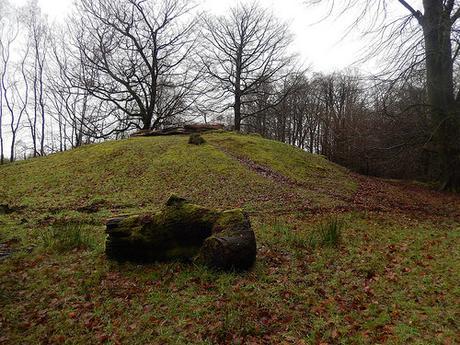
Shortly before lunch, we were met with what was possibly the oldest tree in Wales…
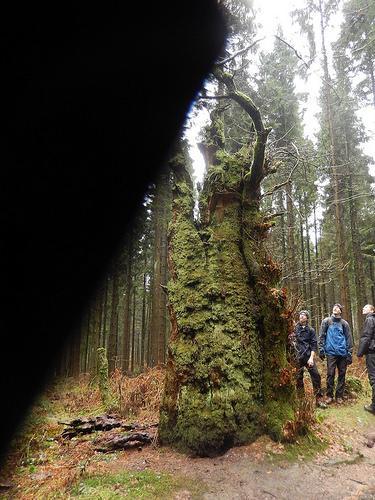
Or may’ve been South Wales; I forget now. It was the first time on this day that my camera had decided to play up. Still, I managed an unobstructed and people-free capture from the other side:
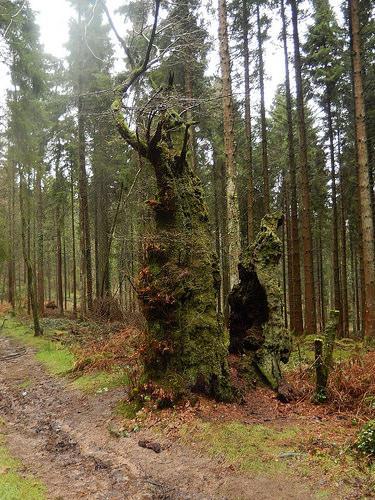
Our lunch stop was on top of one of two mounds, which looked as though they once have been used for burial purposes (barrows, tumulus).
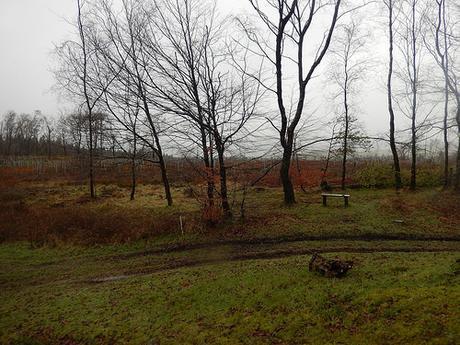
With an absence of views beyond the immediate forest boundary, we did witness respite from the rain, during our break. But for the occasional breeze, it could’ve been quite peaceful, even.
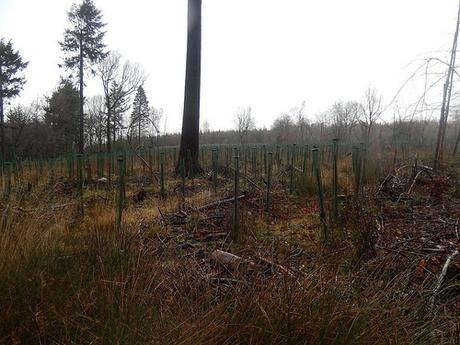
There’s clearly a lot of plantation work going on here, with many acres dedicated to the uprising and growth of young trees. It could be a very different landscape, if one was to return here, even half-a-Century from now.
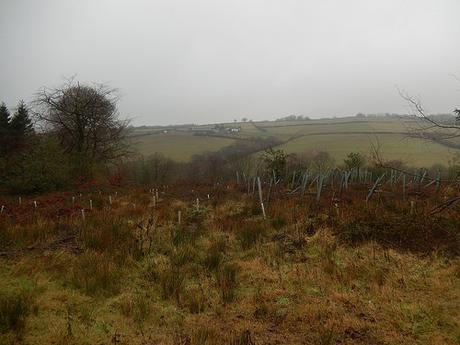
Part of this walk involved an ascent of Gray Hill – a name I’m familiar with from one of the Walk West routes that I’ve yet to uncover myself [see Walk West Again, Walk 30].
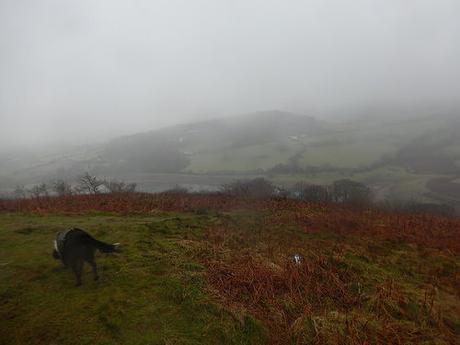
We made one final climb before the very end of the walk; from which, we were able to look down towards the Wentwood Reservoir, a stone’s throw from the car park.
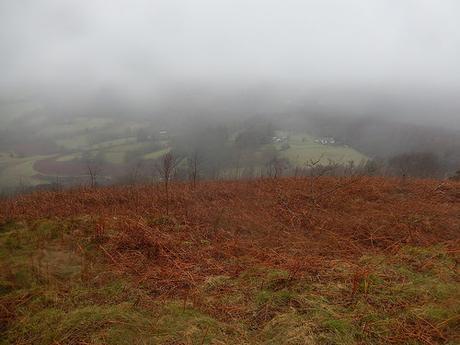
On a clear day, these views must be awesome. I wonder if even the Brecon Beacons can be seen?
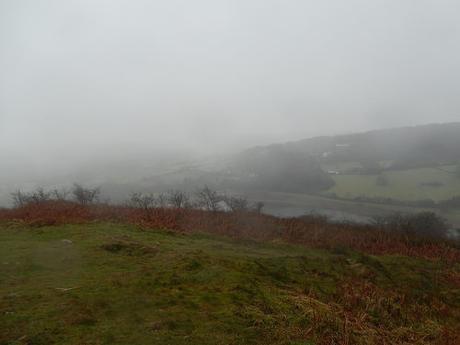
It was one of those days and experiences where you can feel good for having gone out and done something practical and productive, where you may’ve otherwise felt inclined to stay outdoors, glaring out the window at how miserable the world appears to be. Weather for which gore-tex was invented! ;-)
I’ve just read the following facts about Wentwood on Wikipedia:
-
Wentwood is the largest ancient woodland in Wales.
-
Gray Hill contains and stone circle and Megalithic alignment.
-
Wetnwood Hamlet consists of a small number of houses.
-
Among many other species of bird, it is home to nightjars. ;-)
-
The Woodland Trust owns 352 hectares (900 acres) of land here.
Thanks for reading.
